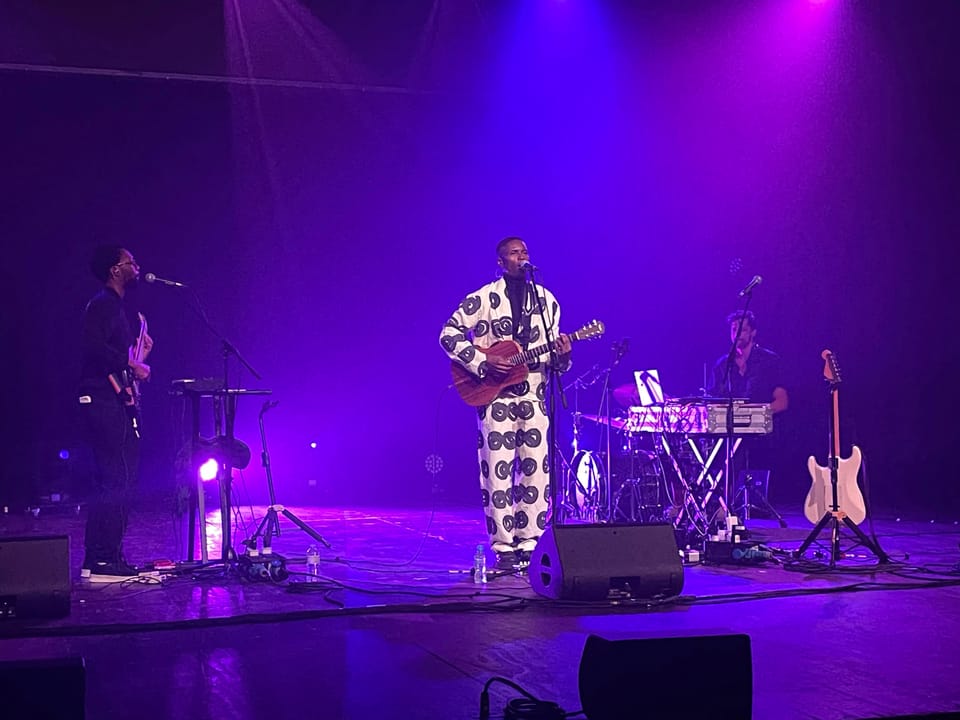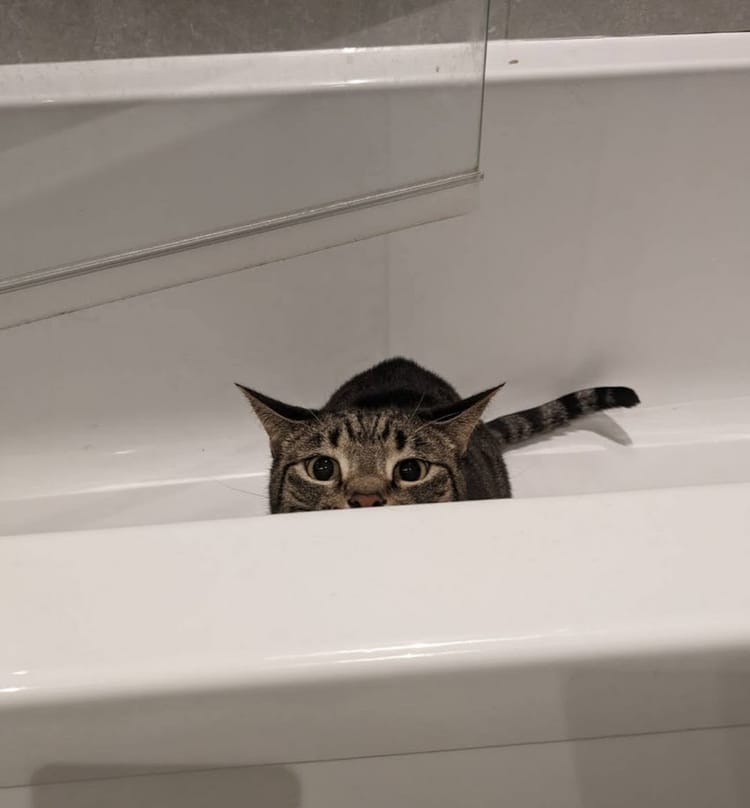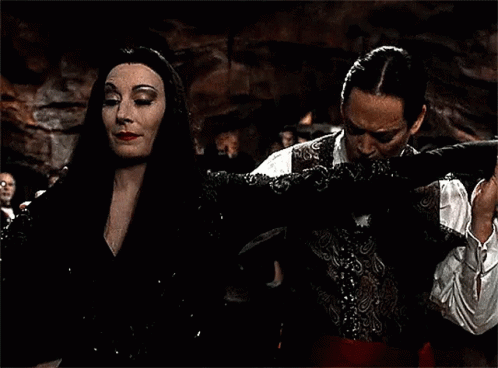Entangled histories

Hello loves!
Last week, I took a few days off writing my next novel Cuckoobird to bob about in a river in the middle of France, about 3 hours south of Paris (wine was drunk; no Olympic medals were awarded). The river was teeming with wildlife. We caught glimpses of voles, beavers, storks, frogs, and spindly water striders. But the thing that made me hoot with delight and almost fall out of our canoe was a sighting of one of my favourite birds, the marvellously extra Bee-Eater.
I was excited because, well, look at her:

As the kids say, the drip is fire. The Bee-Eater is a bird who heard their ex was going to be at this party and came wearing their revenge outfit. Evolution asked them what colour feathers they wanted and these birds said, "YES". They eat wasps and bees, for heaven's sake, using their beaks to smash them against rocks to remove the stingers. Tell me that's not metal.
But it's not just that these technicolour marvels are so fun to spot; it's also that - to me - they're home.
Despite annoyingly being called "European Bee-Eaters", they spend October to April south of the Sahara, and thousands of them return to South Africa every year. Growing up, my dad and I had a Sunday morning tradition of waking up before sunrise, driving out to Rietvlei Nature Reserve, and watching the meerkats. We'd often see the bee-eaters there, dazzling flashes of blue and red as they swooped through the air, hunting bugs.
Historically, they didn't come as far north as England, but as the climate has warmed, they've been spotted here more and more frequently. Since 2022, a recurring breeding site seems to have established itself in Norfolk.
Around 20% of all birds are migrants, making epic journeys each year to follow the warmth and food, to find love, for easier living.

London is a city of migrants: birds and people. 37% of Londoners weren't born in the UK, and many more are the children or grandchildren of people who were born elsewhere. That's no accident. As one of my favourite bits of local graffiti says, in reference to the Windrush Generation: "We are here because you were there." It's also exactly what makes London so wonderful, how much it's a melting pot of everywhere the British formerly colonised (i.e. it's a melting pot of basically everywhere). It's a city that holds a microcosm of the world.
The Royal Academy of Arts hosted an exhibition in April called "Entangled Pasts: Art, Colonialism and Change", looking at art between 1768 and the present that addresses Britain's colonial legacy. Honestly, I found it quite infuriating. That verb, "entangled", is curiously neutral, and there was remarkably little engagement with what colonialism actually was, the brutality and annihilation of it, how much we still live with its consequences. The only artworks that felt properly outraged were those tackling slavery, like Betye Saar's "I will bend but I will not break" (racism content warning on that link).

In general, you get the sense that a lot of English people understand that Transatlantic Slave Trade = bad, but still feel pretty positive about the Empire as a whole.
I've been endlessly surprised, since moving here, how little most British people learn about the British Empire in school, the huge blind spot they have about the role England actually played in the world and how it came to be as wealthy as it is. In the handbook you get to study for the citizenship exam, there are like 20 pages about World War II, and exactly 3 paragraphs on the British Empire, 1/3 of which is about how the British so nicely abolished slavery and gave all the nations their independence back when they asked.
I remember talking to an English friend the week after the Queen died, and her telling me how upsetting it had been seeing all the posts online about things she'd never considered (like the Mau Mau, the origins of the crown jewels...). She said, "It feels like my grandmother died, and now at her funeral I'm learning she was a Nazi." That friend is a progressive, kind, thoughtful person, and she had just never been taught the history of her own country.

Right now, there are far-right riots across England about who gets to be British. They make me really fucking angry. There's no version of contemporary Britain that exists without the contributions - both willingly made and not - of the rest of the world. Our histories were "entangled" by violence and conquest. But also through migration, through people building homes and lives here, working, loving, making art, helping to build this country, and bringing the best parts of home with them.
This country is at its best when it honours those contributions. Celebrates them. Understands that this is the best of what Britain is: a melting pot.
Walking around the city, I spot glimpses of South Africa all the time. The Nelson Mandela statue in Southbank. The self-portraits by Zanele Muholi which are currently blanketing the Tube (advertising their remarkable show which is on at the Tate Mod, don't miss it). The plaques commemorating Ruth First and Joe Slovo's house in Camden, and the statue of Oliver Tambo outside the Muswell Hill house where he lived two decades in exile. The bolts of Shweshwe for sale at Ridley Road market. The biltong kiosks at every train station. The statue of Manche Masemola on Westminster Abbey. The smell of Bunny Chow in Spitalfields. The flash of a bee-eater. The myriad South African accents overheard on the bus, the chime of home.
There are so many of us here. Of course, that makes me sad sometimes. But also, I am so often filled with pride when I see what we're bringing to the world.
London is magic. And it's magic because of us.
Migrant fiction and nonfiction
Some of my favourite books about the migrant experience:
- Isabella Hammad's Enter Ghost, about an actress who returns home to Palestine to take a role in a West Bank production of Hamlet. Such a powerful exploration of how migration leaves you with fractured, multiplied identities.
- Chimamanda Ngozi Adichie's Americanah, about a young Nigerian woman struggling to adapt to life in America while the boy she loved grapples with being undocumented in London. A story about growing up, race, and what it means to return home.
- NoViolet Bulawayo's We Need New Names, a powerful story about a young Zimbabwean woman finding the American dream isn't what she'd hoped.
- Alistair Mackay's The Child, about a South African man who returns to Cape Town after living in New York because he wants to adopt a child, just as the city enters the worst days of the water crisis. A remarkable novel about family and homecoming.
- Sisonke Msimang's Always Another Country, a powerful memoir about growing up in exile, and coming home to a country that failed to live up to its ideals. Interesting to pair with Rian Malan's My Traitor's Heart, another exile return story about post-Apartheid South Africa.
- Mohsin Hamid's Exit West, a magical-realism love story about having to flee a civil war.
- Barbara Kingsolver's The Poisonwood Bible, about a family of missionaries who move to the Belgian Congo in 1959. Things do not go well.
- The Good Immigrant, edited by Nikesh Shukla, a collection of essays about what it means to grow up in Britain as someone treated as an other.
- Isabel Allende's My Invented Country, about what it feels like to love and belong to a country you have lived most of your life exiled from.
- Bernadine Evaristo's Girl, Woman, Other, poetic, interweaving short stories that span decades, many of them about migration to the UK.
The First Murder on Mars

Migration across the world is one thing, but we may be only a few decades away from seeing people leaving to build a new life on a whole different planet. My dear friend Sam Wilson recently released a book exploring that theme called The First Murder on Mars. Friends, it SLAPS.
The plot unfolds in two timelines: 2034, in the early days of the Mars colony, when the first human is born on the red planet - and grows up to commit its first murder, and 2103, when a bodyguard named Dylan Ward is caught up in a dangerous investigation to expose the truth of that murder. Think murder-mystery meets The Expanse meets Mad Max: Fury Road, on Mars.
What I loved about it is how Sam weaves in snippets of South Africa's colonial history, specifically the dynamics of the early Dutch East India-run Cape Colony employees in conflict with the first generations of local-born "Afrikaners", and thinks about how similar dynamics might play out on a Mars colony.
Also, okes, it's just so FUN. It's a wild rover ride across the red planet which is somehow both exhilarating and deeply thoughtful about how societies are built, captured, and liberated. It’s meticulously researched, vividly imagined and moves faster than a spaceship. I bloody adored this book.
If you're in the UK, Sam Wilson's going to be at Glasgow Worldcon between 8-12 August, along with Nnedi Okorafor, Lauren Beukes, Ben Aaronovitch, Wole Talabi, and so many other awesome people. I'll be there too, come hang out!
Bongeziwe Mabandla
Speaking of South Africans being magic, here's the song I've been playing on repeat recently (among all the Chappell Roan).
A few months ago, at a (sublime) Bongeziwe Mabandla concert in Dalston, and ended up chatting to the woman in the seat next to me, who'd just moved to London from Jozi. We started reminiscing about an Afropunk festival we'd both gone to in 2018 at Constitution Hill, how there was one of those Biblical Joburg thunderstorms, and the techies started packing away the sound equipment, and thousands of attendees ran for cover under the tiny food marquees, but then how - in true Joburg fashion - everyone just started dancing, sardined against each other, no music just vibes, dancing with thousands of strangers to the sound of the rain.
Last thing: a weird request, but does anyone know of a social worker based in the UK who deals with fostering situations? I need to ask some questions for my novel. If you do, please hit reply and put me in touch. Thank yoooooou!
Wishing you bee-eaters, gold medals, and things that remind you of home,
Sam






Member discussion